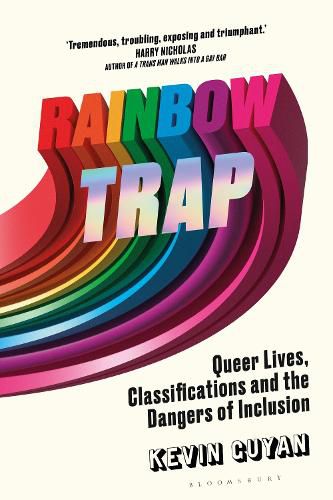Readings Newsletter
Become a Readings Member to make your shopping experience even easier.
Sign in or sign up for free!
You’re not far away from qualifying for FREE standard shipping within Australia
You’ve qualified for FREE standard shipping within Australia
The cart is loading…






Rainbow Trap reveals how the fight for LGBTQ equalities in the UK is shaped - and constrained - by the classifications we encounter every day.
Looking across six systems - the police and the recording of hate crimes; dating apps and digital desire; outness in the film and television industry; borders and LGBTQ asylum seekers; health and fitness activities; and DEI initiatives in the workplace - Rainbow Trap documents how inclusive interventions - such as new legislation, revamped diversity policies and tech fixes - have attempted to bring historically marginalized communities out of the shadows.
Yet, as part of the bargain, LGBTQ people need to locate themselves in an ever-growing list of classifications, categories and labels to 'make sense' to the very systems they are seeking to access. This requirement to be classified catches LGBTQ communities in a rainbow trap. Because when we look beyond the welcoming veneer of inclusive interventions, we uncover sorting processes that determine what LGBTQ lives are valued and what queer futures are possible.
$9.00 standard shipping within Australia
FREE standard shipping within Australia for orders over $100.00
Express & International shipping calculated at checkout
Rainbow Trap reveals how the fight for LGBTQ equalities in the UK is shaped - and constrained - by the classifications we encounter every day.
Looking across six systems - the police and the recording of hate crimes; dating apps and digital desire; outness in the film and television industry; borders and LGBTQ asylum seekers; health and fitness activities; and DEI initiatives in the workplace - Rainbow Trap documents how inclusive interventions - such as new legislation, revamped diversity policies and tech fixes - have attempted to bring historically marginalized communities out of the shadows.
Yet, as part of the bargain, LGBTQ people need to locate themselves in an ever-growing list of classifications, categories and labels to 'make sense' to the very systems they are seeking to access. This requirement to be classified catches LGBTQ communities in a rainbow trap. Because when we look beyond the welcoming veneer of inclusive interventions, we uncover sorting processes that determine what LGBTQ lives are valued and what queer futures are possible.